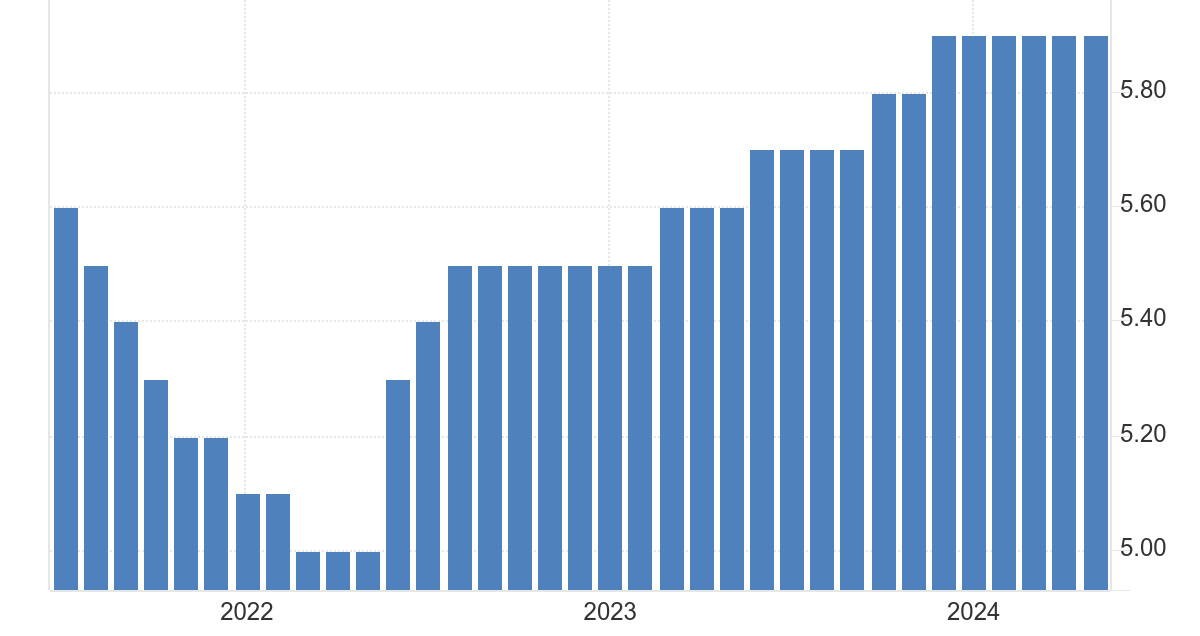- e-mail us
- We are Open
Work in Germany
- Home
- Work in Germany

Work opportunities in Germany are also open to Kurds, who can apply for a German job seeker visa. Working conditions in Germany typically require specific educational qualifications or expertise in a particular profession, along with language proficiency at the B1 level. These qualifications enable individuals to seek employment opportunities in Germany, where companies often advertise vacant positions.
Talav Company acts as an intermediary between applicants and German companies, facilitating job offers and connecting individuals with German legal experts to obtain work visas. A key advantage of the German work visa is the ability to bring spouses and children under 18 years old. Spouses are permitted to work full-time, and children have access to free education.
The duration of the job seeker visa has recently been extended from 6 to 9 months. However, one drawback is that if an applicant fails to secure employment during this period, they are required to leave Germany.
This article by Our Company aims to provide individuals with an opportunity to assess their eligibility for obtaining a German work visa by outlining working conditions in Germany. It is based on advice from local legal experts, research from government websites, and reliable sources. Please feel free to contact Talav Company or fill out their contact form for a free telephone consultation with their expert colleagues.

Topics covered in this article:
– General working conditions in Germany
– Work immigration pathways to Germany
– Immigration via job search in Germany
– Immigration via job offers in Germany
– German work visa requirements
– In-demand jobs in Germany
– Working in Germany with a degree
– Salary & income levels in Germany
– Unemployment rates & labor market in Germany
– Employment opportunities in Germany
– Employment agencies in Germany
– Documents needed for a German work visa
– Requirements for obtaining a German dependent visa based on work
– Obtaining permanent residence & citizenship in Germany via employment
– Commonly Asked Questions
– Last words
General working conditions in Germany
Working in Germany requires meeting certain criteria. To work and obtain a study visa in Germany, your field of study must align with the country’s demand and you must have a minimum of three years of work experience in this area to qualify for a work visa. Additionally, possessing a German language certificate or IELTS is crucial for obtaining a work visa; having a German language certificate significantly boosts your chances of securing a job.
Another important criterion for acquiring a work visa is the age requirement for immigrating to Germany. Applicants under the age of 40 have a better chance of obtaining a visa and finding employment in Germany. Another essential condition is demonstrating financial stability before applying at the embassy; applicants need to show they can financially support themselves during the visa application process.
Work immigration pathways to Germany
Work migration to Germany can be achieved through two primary routes: job offers and job seeker visas.
In the job offer route, individuals can immigrate by securing employment opportunities in Germany. This involves searching for jobs on employment websites, submitting resumes to companies, and attending job interviews. Education, work experience, and German language proficiency are vital in attracting employers.
In the job seeker visa route, individuals can come to Germany for up to one year to search for a job. If they find employment, they can then apply for a work visa. This route is intended for skilled individuals seeking to find a job in Germany.
In both routes, fluency in German is highly beneficial, and understanding the various visa and work conditions in Germany is crucial.
Immigration via job search in Germany
One of the visa types for working in Germany is the German job search visa. By obtaining this visa, a job seeker can stay in Germany for up to one year. During this period, the applicant must find a job relevant to their field of study and secure a work contract of at least one year with a German employer. If unsuccessful within six months, the visa will expire, and the applicant must return to their home country. If successful, the applicant can extend their residence permit and start working in Germany. It’s important to note that the job search visa does not permit employment in Germany; it only allows the applicant to visit and look for a job. However, recent laws now permit part-time work during this visa.
Applicants must provide at least a B1 German language certificate and have at least a high school diploma. Professional technical degrees and diplomas are also acceptable, but applicants from Kurdistan must provide at least a post-graduate degree, which must be validated in Germany through the Anabin or ZAB websites linked below.
For comprehensive information about the German job search visa, refer to detailed articles and seek advice from Talav Company consultants if needed.
Immigration via job offers in Germany
To secure a job offer in Germany, you need to meet the following conditions:
- Skills and Education: Possess education and work experience related to your desired job.
- German Language: Proficiency in German at level B2 is required for job tasks, with valid language certificates like TestDaF or Goethe-Zertifikat.
- Job Search: Actively search on German employment websites, submit resumes to companies, and attend interviews.
- Job Approval by Employment Agency: Some job opportunities require approval by the employment agency.
- Financial Resources: Ensure you have financial means to live in Germany for a year (approximately 1200 euros per month).
- Work Visa: In some cases, a work visa issued by the German embassy in your home country is necessary.
German work visa requirements
Securing employment in Germany is possible through the issuance of a work visa. To obtain a German work visa or a job offer visa, you must have a job offer from a German employer. According to previous labor regulations, in order to hire workers from outside the European Union and Switzerland, employers had to advertise the job position within Germany and the EU for six months. If no suitable candidate was found, the employer could then extend the job offer to candidates outside the EU. Fortunately, this law has changed, and now employers can directly send job offers without needing to advertise locally first.
In-demand jobs in Germany
To work in Germany and obtain a work visa, the applicant’s field of study and work must be among the jobs in demand in Germany. The list of required jobs includes:
- Sales Expert
- Warehouse Worker
- Warehouse Specialist
- Cleaner
- Secretary
- Project Supervisor
- Accountants
- Host
- Truck Driver
- Sales Specialist
- Automotive Industry Expert
- Seller
- University Lecturer and Researcher
- Metal Cutting Worker
- Factory Machine Operator
- Building Electrician
- Transport and Logistics Employee
- Programmer
- Plumber
- Heating and Cooling Equipment Repairman
- Crane and Lift Operator
- Nurse
It is important to note that some fields require degree equivalency or additional training courses that may last more than six months. For example, nursing and psychiatry are fields that require such conditions. Therefore, individuals with expertise in these areas, despite the labor shortage, may not be eligible for a job search visa.
Working in Germany with a degree
You may have heard about the possibility of obtaining a German work visa with a diploma or a technical vocational degree. Only individuals with technical and professional degrees issued by German institutions or approved by Germany can apply for work in Germany. This applies to professional, non-academic technical degrees. For critical jobs in engineering and technology, a post-graduate degree may also be acceptable for a work visa application.
Salary & income levels in Germany
One of the key considerations before applying for a work visa in Germany is the wage and salary levels. In 2019, Germany increased salaries for employees and workers. The minimum wage in Germany in 2018 was 8.84 euros per hour, approximately 1498 euros per month. This increased to 9.19 euros per hour on January 1, 2019. This minimum wage applies to all foreign workers, employees, part-time workers, trainees, and those in a trial period. Overtime work is compensated accordingly.
Unemployment rates & labor market in Germany
One crucial factor to consider when planning to work in Germany is the unemployment rate. A low unemployment rate indicates better job prospects. As of 2022, despite the COVID-19 situation, Germany’s unemployment rate was below 6%, indicating a healthy labor market and a shortage of workers in fields like mechanical engineering, IT, and technical and engineering sectors. Those meeting the necessary conditions can apply for a job search visa.
In this context, Our Company offers free registration to connect qualified individuals with employment agencies in Germany. Healthcare professionals, including radiologists, orthopedists, pharmacists, anesthesiologists, and computer engineers, among others, can participate in this registration. One of the benefits of this employment pathway is high job security and an annual salary of around 30,000 euros. Additionally, your spouse and children can accompany you with this type of residency.
Germany Unemployment Rate-Percentage%

Employment opportunities in Germany
Securing employment in Germany and finding a suitable job through a German job search visa involves seeking employment within the country. If you obtain a job search visa, you must actively search for jobs using various methods. You can visit job centers in Germany and submit your resume to find job openings. Job seekers can also use reliable job search websites dedicated to this purpose. One of the simplest ways for Kurds & others to find a job in Germany is by using these reputable job search websites. You will need to send your complete resume and search for employers and companies looking for workers in your field. A reliable agency you can turn to is the Federal Employment Agency. One of the most straightforward and cost-effective ways to find a job in Germany is by utilizing these job centers and websites, which will be thoroughly discussed in the following section, along with the introduction of some of the most trustworthy job centers in Germany.
Given the importance of finding employment, how to present your resume and CV to employers, and other key points about work-related immigration, Talav Company has created a product called the step-by-step guide to working abroad. This product, developed and offered by us for the first time, covers all the essential points about job hunting and working abroad.
Employment agencies in Germany
Job seekers in Germany can apply for positions through employment agencies and look for suitable job opportunities. These agencies can offer significant assistance in finding a job that aligns with your education. In this section, we introduce some reliable employment agencies to help you find a job. Here are some of the employment agencies in Germany:
Accredited employment agency in Germany | Description |
Contacts & Management | Stresemannstraße, 28, 28 Dusseldorf, 40210 Email: info@contacts-management.de Tel: +49 (0)211/0-876714 Fax: +49 (0)211/3858328 |
Proco Global Frankfurt | An der Welle, 4 Frankfurt, 60322 |
TTA Personal GmbH | Warschauer Str., 39 Berlin, 10243 Germany |
stuwex | Waldenserstr. 2-4 10551 Berlin Germany |
Mietkoch freelance-cook | paster-behrends-str. 59 12359 Berlin Germany |
Bip Dientleistungen | Friedrichstr. 191 10117 Berlin Germany |
Tml-professional Sp. z o. o | AZ Futuro – Trabajar en Alemania Schwarzwaldstraße, 18 Tuttlingen, 78532 Germany |
Documents needed for a German work visa
If you want to work in Germany, you must provide certain documents to apply for a work visa. In this section, we will review the necessary documents for obtaining a German work visa. The required documents are as follows:
- Applicant’s bachelor’s or master’s degree from a German university or equivalent
- Valid passport with at least 6 months remaining
- Two recent photos with a white background
- Employment letter from the applicant’s employer
- Travel and medical insurance
- Completed visa application form online
- Prerequisites for applying at the General Consulate of the Federal Republic of Germany
- Proof of financial ability
- Hotel reservation or property rental for a limited period
- At least B1 level German language certificate
Once you have gathered all the necessary documents, you can submit your visa application through the German embassy. The processing period for visa applications ranges from 6 to 11 weeks after visiting the embassy, and the fee for the application is 60 euros. As mentioned previously, a German language certificate is essential for obtaining a work visa. Given the challenges of learning German in Kurdistan & the typically lengthy process.
Requirements for obtaining a German dependent visa based on work
One of the significant concerns for working in Germany is obtaining a companion visa for married applicants. A companion includes the spouse and children under 18 years of age. Initially, if an applicant obtains a German job search visa, they must search for a suitable job in Germany alone. Once they secure employment relevant to their field, they can apply for a long-term visa. In this case, they can also apply for an accompanying visa for their spouse and children to join them in Germany. To request family reunification, the applicant must demonstrate the ability to cover the expenses of family members. This involves proving they have a suitable job in Germany, sufficient income, and appropriate housing. One of the benefits for family members in Germany is free education for children.
Obtaining permanent residence & citizenship in Germany via employment
Many individuals working in Germany aim to obtain residency and citizenship. While acquiring residency and citizenship is a complex process, it is a common goal. If you enter Germany with a work visa and work there for 4 to 5 years while paying insurance and taxes, you can apply for permanent residence. Obtaining permanent residence allows you to enjoy benefits such as medical, health, and educational services, and consulate support. However, it does not grant political rights like voting, membership in government associations, or free movement.
To obtain German citizenship and a passport after gaining permanent residence, you must prove you have lived in Germany for 8 years. You also need to demonstrate sufficient proficiency in the German language at the B1 level and have enough income to support yourself and your family. Additionally, you must have a clean criminal record during your stay and pass the citizenship test. If you hold citizenship from other countries, you must renounce it to obtain German citizenship.
Commonly Asked Questions
How long does the German embassy process take? German embassy schedules interviews for work visa applications about a year in advance.
Is it possible to obtain a residence permit in Germany with a job search visa? German job seeker visa allows you to stay in Germany for six months to look for work. If you find a suitable job, you can then apply for a German work visa.
How can we apply for work in Germany? There are two main ways to work in Germany: via job search visa or a job offer visa. To search for a job, you can apply through employment agencies in Germany or directly in person.
What are the requirements for obtaining a German job search visa? To obtain a German job seeker visa, you must have at least a bachelor’s degree, a B1 level German language certificate, and three years of work experience. Additionally, your age should not exceed 40 years.
Last words
This article examined the conditions for obtaining a German work visa, the documents required for a job search visa, and the criteria for workforce acceptance. It also discussed the required jobs in Germany and how to obtain residency and citizenship after working there. Given the low unemployment rate in Germany and the numerous job opportunities, especially in certain fields, many people aspire to work and obtain a work visa in this country. Working in Germany requires conditions such as having at least a bachelor’s degree, at least three years of work experience in one of the job fields required by Germany this year, and proficiency in the German language at least at the B1 level. Our Company has been a leader in introducing the German job search visa and obtaining visas for job applicants in this country. Therefore, it is recommended that those interested in more information about working in Germany and the application process contact Talav Company or submit their information in the contact form to benefit from the Company’s free telephone consultation services provided by prominent consultants and experts in this field. Additionally, at the end of the article, you can ask your questions in the “Question & Response” section, which will be answered promptly.

for immigration & Travel
Useful Links
Warning! The information provided on this website is based on research conducted by non-legal professionals, and Talav Company does not assume legal responsibility for the accuracy or reliability of this content.
We highly recommend that you independently verify this information and consult with a qualified local attorney to ensure it is applicable to your specific situation.

